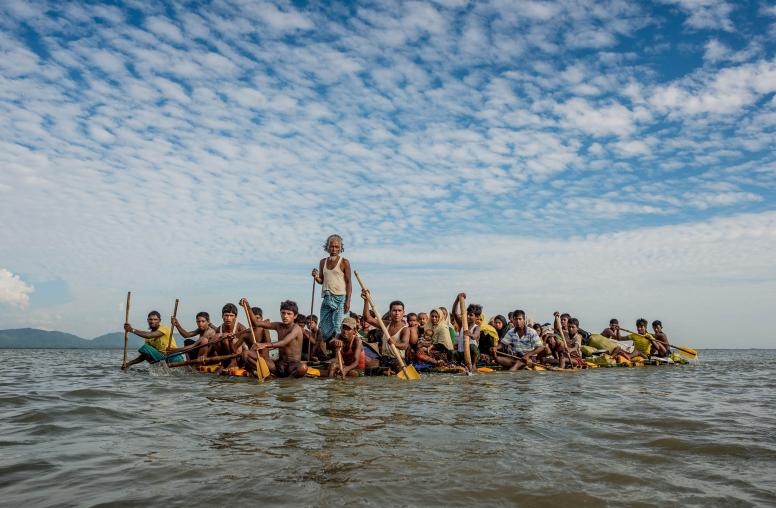The United States needs to combine firm backing for democratic progress and human rights in Burma with a rigorous understanding of the country’s many divisions, to help ensure its development stays on track, says Derek Mitchell, a former U.S. ambassador there and now a senior advisor at USIP. He spoke in a videotaped conversation with USIP President Nancy Lindborg. They were wrapping up a week-long visit that included a meeting with now-State Counsellor Aung San Suu Kyi, whose party took power in March 2016 after 50 years of military rule.
Mitchell served from 2012 to 2016 as the first U.S. ambassador to Burma since diplomatic relations were downgraded in 1990. On this visit, he and Lindborg met with dozens of representatives from government, the military, civil society organizations, religious institutions and ethnic groups, and examined USIP programs in the country. They saw signs of progress: Mitchell cites citizens demanding freedom of the press; Lindborg notes that monks talked of using Facebook for rapid response to inflammatory rumors.
But Burma’s array of ethnic armed conflicts and communal tensions and its tradition of military rule complicate any endeavor at development.
The international community has “defined this country as a democratic challenge, for good reason,” Mitchell says. “But I don’t think many people understand that the defining challenge of this country is a unifying identity—in essence, ending the civil war, and building mutual respect.”
USIP is hosting a daylong conference on Burma on March 16.
Lindborg and Mitchell discuss the pace of Burma’s democratic change, the challenge of working toward peace among armed ethnic groups and the conflict between Buddhists in the country’s majority and the minority Muslim Rohingya in Rakhine State.



